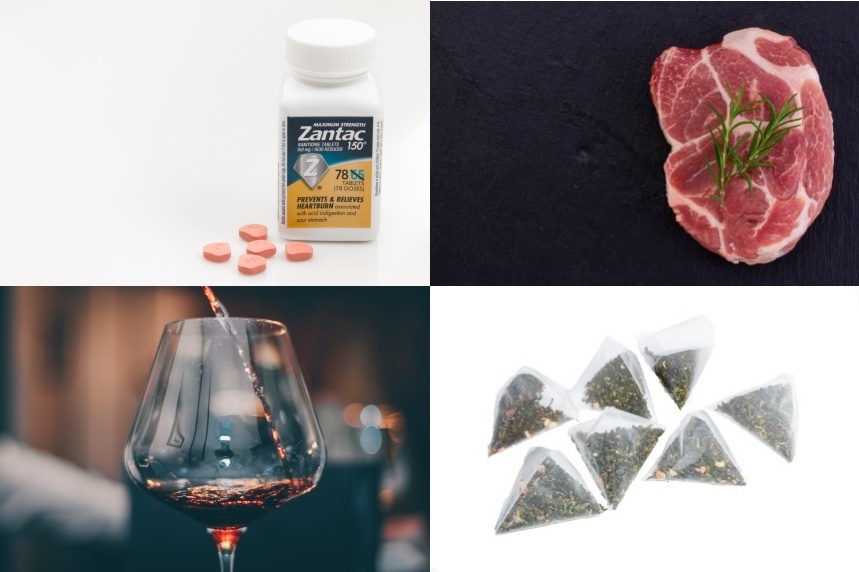In the last several weeks we’ve been hit with so many health revelations, it’s hard to separate what’s important from what’s rubbish. Here are four new observations that caught my eye.
1. Switch Heartburn Medication
Two months ago, I wrote about the proton pump inhibitor (PPI) esomeprazole (Nexium®), and the weird side effect it had of promoting allergies. Now, another anti-heartburn drug that works differently, H2 antagonist ranitidine (Zantac®), has been removed from shelves because it can degrade to produce unacceptable levels of a chemical, N-nitrosodimethylamine (NDMA), which is a known cancer-producing drug. Ranitidine, recommended only for short term use, has prompted the FDA to suggest that patients who are using ranitidine consider switching to a different anti-heartburn drug such as a PPI or a different H2 blocker that doesn’t degrade to NDMA.
2. Avoid Plastic Tea Bags
In June, I wrote about how unknowingly we can ingest five grams of plastic each week, which, by weight, is equivalent to the amount of plastic found in a single credit card. Recently, four brands of tea that use plastic tea bags were tested by steeping for five minutes in water after boiling. Investigators found that a single bag released more than 11 billion micro and 3 billion nano-sized plastic particles (a human hair has a diameter of about 75,000 nanometers). Frequent tea drinkers could be repeatedly dosing themselves with billions of plastic particles. While I drink mostly coffee, in restaurants it often comes with a plastic straw or spoon in it which I quickly remove. I also worry about hot coffee in a cardboard cup lined with plastic as an insulator. The health implications of consuming plastic are unknown, but common sense tells me that ingesting plastic can’t be good for you!
3. Don’t Get Too Excited about Eating Red Meat
A controversial paper about red meat published in a prestigious medical journal, Annals of Internal Medicine, concluded that diets restricted in red meat may have little or no effect on major cardiometabolic outcomes and cancer mortality and incidence. The authors concluded that the benefits were too small to recommend that meat lovers change eating habits. The conclusions of these authors, one of whom had previous research ties to a food industry trade group, contradicted long held beliefs championed by most major medical societies that eating red meat was linked to increased risks of heart disease, cancer, and other assorted ills. While many, if not most, dietary studies report an association with this or that outcome, few have the credibility of true science. One such study that I reported on over a year ago demonstrated in a scientifically convincing fashion the benefits of the Mediterranean Diet, with or without nut or olive oil supplementation. Readers can pick the publication that supports their desires, but as a physician scientist, I would go with the hardcore evidence.
4. Alcohol May Help Avoid Cognitive Decline
And finally, some good news for older adults. A study of 3021 participants 72 years or older (almost half women) free of dementia at the start of the study found during a six year follow up that daily low-quantity drinking of alcohol was associated with a lower dementia risk than infrequent higher-quantity drinking. Among participants with cognitive disability at the start, consumers of more than 14.0 drinks per week had the most severe cognitive decline compared with consumers of less than 1.0 drink per week. So, if you’re mentally intact and older than 72, join me in a glass (or two) of red wine for dinner tonight!
À votre santé.
Featured image: Shutterstock
Become a Saturday Evening Post member and enjoy unlimited access. Subscribe now



